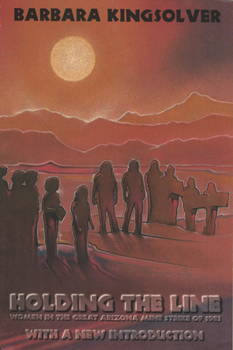Holding the Line
Select Format
Select Condition 
Book Overview
Holding the Line, Barbara Kingsolver's first non-fiction book, is the story of women's lives transformed by an a signal event. Set in the small mining towns of Arizona, it is part oral history and part social criticism, exploring the process of empowerment which occurs when people work together as a community. Like Kingsolver's award-winning novels, Holding the Line is a beautifully written book grounded on the strength of its characters. Hundreds...
Customer Reviews
Great Book, As With All Her Work
the power of women in the strike
Women on the picket line and its impact on their lives
Amazing writing about a horrific event
Frightening
Holding the Line: Women in the Great Arizona Mine Strike of 1983 (ILR Press Books) Mentions in Our Blog

Today is Barbara Kingsolver's 65th birthday. The author's absorbing works of fiction, memoir, nonfiction, and poetry weave together evocative, lyrical prose with themes of social justice and environmental activism. Read on to learn more about her.

Labor Day is more than just the last hurrah of summer. It is meant to honor and celebrate those who work—which is most of us. The day is also a time to reflect on worker's rights. This blog post focuses specifically on the history of women and girls working in America and the challenges they have faced.






